
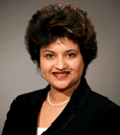 Paula Gangopadhyay, Project Director/Host Scholar
Paula Gangopadhyay, Project Director/Host Scholar
Paula Gangopadhyay is the Director of Education at The Henry Ford. She is responsible for the leadership, strategic direction, design and development of education. She believes that classroom experiences for all types of learners can be enhanced by the holistic, cross-disciplinary and hands-on educational tools offered by museums. She has a master’s degree in history, certification in archival, museum and editing studies and a fellowship in education policy. During her 16-year career, Gangopadhyay has served as curator of education, public programs and visitor services at the Public Museum of Grand Rapids, executive director of the Great Lakes Center for Education, Research and Practice and executive director of the Commission for Lansing Schools Success (CLASS). She was also selected as a finalist for the 2000 Governor's Service award. In addition, she serves on several regional, state and national education boards and panels.
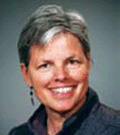 Dorothy Ebersole, Host Scholar
Dorothy Ebersole, Host Scholar
Dorothy is Senior Curator of Education at The Henry Ford and has been involved in developing a wide array of partnerships, programs and materials for teachers and students for the past 18 years at The Henry Ford. Dorothy received her B.A. in history from Oklahoma State University and completed the Michigan Education Policy Fellowship Program at Michigan State University. Her career in museum education has included employment at the Public Museum of Grand Rapids, The Strong Museum in Rochester, New York, and the Geneva Historical Society in Geneva, New York. She is on the board of directors of the Michigan Council for History Education.
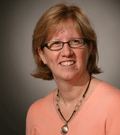 Mary Wyatt , Host Scholar
Mary Wyatt , Host Scholar
Mary Wyatt is the Associate Curator for Education at The Henry Ford. She received her Bachelor of Science in Education at the University of Michigan – Dearborn. Mary is a Michigan Certified Teacher in elementary education, with special endorsements in math and science. Before joining the Education team, Mary was a sixth grade teacher in Novi Community Schools. At The Henry Ford, Mary’s duties include coordination of the NEH summer teacher’s workshops, the US Green Buildings Council Grant, and various special projects.

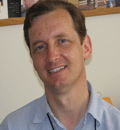 Marc Greuther, Host Scholar
Marc Greuther, Host Scholar
Marc Greuther, Head Curator and Curator of Industry and Design, has a B.A from the Courtauld Institute of Art at the University of London, and over twenty years of experience with industrial technology at The Henry Ford. His seven years as a member of the institution’s Historic Operating Machinery unit involved him in the operation and troubleshooting of a wide range of artifacts, from 19th century machine tools and steam engines to late 20th century robots and production equipment. His writings for The Society for the History of Technology’s journal Technology and Culture usually spring from or explore areas where art history and the history of technology overlap.
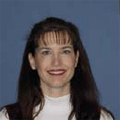 Jeanine Head Miller, Host Scholar
Jeanine Head Miller, Host Scholar
Curator of Domestic Life, Jeanine Head Miller’s background includes studies in American History, Art History, and Psychology. She has thirty years of experience in the history museum field in a variety of roles. She has developed cataloging systems, designed historic interiors, created educational programs, authored publications, and curated exhibits. Jeanine has written and produced many visitor-focused museum programs, including museum theater, first-person video and audio components for exhibits, and audio tours.
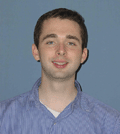 Ryan Spencer, Host Scholar
Ryan Spencer, Host Scholar
Ryan manages Greenfield Village's premier living history site: Firestone Farm. He oversees historic interpretation, animal husbandry, and crop care. He has a Master of Letters in Museum Studies from the University of St. Andrews, Scotland: School of Art History, and a Bachelor of Arts in History from Hillsdale College as well as a secondary teaching certificate. He taught at two charter chools, was a presenter in Greenfield Village, and worked on several projects for The Henry Ford's Education Team prior to joining Greenfield Village Administration. His other museum work includes the National Museum of Scotland, Edinburgh; St. Andrews Museum, St. Andrews, Scotland; and the Will Carleton Poor House, Hillsdale, Michigan. Contact: 313.982.6056 or RyanSp@TheHenryFord.org

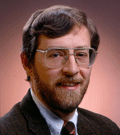 Bob Casey is an automotive historian and author of a forthcoming centennial history of the Model T Ford. Bob Casey has combined his love of engineering and of history. He is a graduate mechanical engineer and worked for Bethlehem Steel. He also holds degrees in American history and the history of technology. He has been a historian and curator for the Institute of Electrical and Electronics Engineers, Sloss Furnaces National Historic Landmark, and the Detroit Historical Museum. Since 1991 he has been John and Horace Dodge Curator of Transportation at The Henry Ford. He is a judge at the Meadow Brook and Glenmoor Gathering concourses, and his book The Model T: A Centennial History was published by Johns Hopkins University Press in July, 2008.
Bob Casey is an automotive historian and author of a forthcoming centennial history of the Model T Ford. Bob Casey has combined his love of engineering and of history. He is a graduate mechanical engineer and worked for Bethlehem Steel. He also holds degrees in American history and the history of technology. He has been a historian and curator for the Institute of Electrical and Electronics Engineers, Sloss Furnaces National Historic Landmark, and the Detroit Historical Museum. Since 1991 he has been John and Horace Dodge Curator of Transportation at The Henry Ford. He is a judge at the Meadow Brook and Glenmoor Gathering concourses, and his book The Model T: A Centennial History was published by Johns Hopkins University Press in July, 2008.
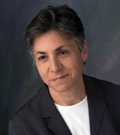 Nancy Gabin was born in New York and grew up in Massachusetts but has lived in the Midwest since 1977. She received a B.A. from Wellesley College in 1977 and a Ph.D. from the University of Michigan in 1984. A faculty member in the Department of History at Purdue University since 1983, she teaches courses in American women’s history and labor history as well as the United States history survey and a course on the 1960s. Cornell University Press published Feminism in the Labor Movement: Women and the United Auto Workers, 1935-1975 in 1990. Articles on women, work, and the labor movement have been published in Labor History, Feminist Studies, Labor’s Heritage, and the Indiana Magazine of History as well as in several anthologies and encyclopedias including Work Engendered: Toward a New History of American Labor (ed. Ava Baron), Midwestern Women: Work, Community, and Leadership at the Crossroads (eds. Lucy Eldersveld Murphy and Wendy Hamand Venet), The State of Indiana History 2000 (ed. Robert Taylor), and The American Midwest (ed. Richard Sisson, et al.). She is completing a one-volume history of women in Indiana and is developing a study of women workers and the political economy of gender in the twentieth-century Midwest.
Nancy Gabin was born in New York and grew up in Massachusetts but has lived in the Midwest since 1977. She received a B.A. from Wellesley College in 1977 and a Ph.D. from the University of Michigan in 1984. A faculty member in the Department of History at Purdue University since 1983, she teaches courses in American women’s history and labor history as well as the United States history survey and a course on the 1960s. Cornell University Press published Feminism in the Labor Movement: Women and the United Auto Workers, 1935-1975 in 1990. Articles on women, work, and the labor movement have been published in Labor History, Feminist Studies, Labor’s Heritage, and the Indiana Magazine of History as well as in several anthologies and encyclopedias including Work Engendered: Toward a New History of American Labor (ed. Ava Baron), Midwestern Women: Work, Community, and Leadership at the Crossroads (eds. Lucy Eldersveld Murphy and Wendy Hamand Venet), The State of Indiana History 2000 (ed. Robert Taylor), and The American Midwest (ed. Richard Sisson, et al.). She is completing a one-volume history of women in Indiana and is developing a study of women workers and the political economy of gender in the twentieth-century Midwest.
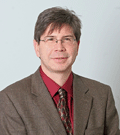 Prof. Martin Hershock is an Associate Professor of History and Chair of the Department of Social Sciences at the University of Michigan-Dearborn where he teaches courses on the 19th century United States. He is the author of The Paradox of Progress and co-editor of The Political Lincoln and The History of Michigan Law. Currently, he is completing work on a new book, Oh Lord Make Haste to Help Me: The Life and Times of Timothy M. Joy, Debtor, 1789-1813, which will be published by Harvard University Press in 2010.
Prof. Martin Hershock is an Associate Professor of History and Chair of the Department of Social Sciences at the University of Michigan-Dearborn where he teaches courses on the 19th century United States. He is the author of The Paradox of Progress and co-editor of The Political Lincoln and The History of Michigan Law. Currently, he is completing work on a new book, Oh Lord Make Haste to Help Me: The Life and Times of Timothy M. Joy, Debtor, 1789-1813, which will be published by Harvard University Press in 2010.
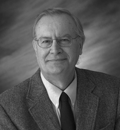 Prof. R. Douglas Hurt received his Ph.D. from Kansas State University and is Head of the History Department at Purdue University. Dr. Hurt is a specialist in American Agricultural History. He is a past president of the Agricultural History Society and has served as the editor of the international journal for agricultural history entitled Agricultural History. Dr. Hurt is the author of eighteen books, the most recent being The Great Plains during World War II. He is currently writing a book entitled The Big Empty: The Great Plains during the Twentieth Century and is conducting research on agriculture during the Civil War.
Prof. R. Douglas Hurt received his Ph.D. from Kansas State University and is Head of the History Department at Purdue University. Dr. Hurt is a specialist in American Agricultural History. He is a past president of the Agricultural History Society and has served as the editor of the international journal for agricultural history entitled Agricultural History. Dr. Hurt is the author of eighteen books, the most recent being The Great Plains during World War II. He is currently writing a book entitled The Big Empty: The Great Plains during the Twentieth Century and is conducting research on agriculture during the Civil War.
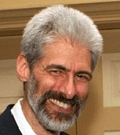 Dr. Paul Israel. Paul Israel is director and general editor of the Thomas A. Edison Papers at Rutgers University. The Edison Papers provides leadership in publishing and developing the documentary legacy of America’s most prolific inventor and innovator. To date the project has produced six volumes of The Papers of Thomas A. Edison as well as an online edition with over 200,000 document images (http://edison.rutgers.edu). In 2005 the Edison Papers received a special Eugene S. Ferguson Prize from the Society for the History of Technology (SHOT) as an outstanding and original reference works that will support future scholarship in the history of technology. The Edison Papers are also working to advance the Edisonian legacy through interdisciplinary initiatives in young and higher education.
Dr. Paul Israel. Paul Israel is director and general editor of the Thomas A. Edison Papers at Rutgers University. The Edison Papers provides leadership in publishing and developing the documentary legacy of America’s most prolific inventor and innovator. To date the project has produced six volumes of The Papers of Thomas A. Edison as well as an online edition with over 200,000 document images (http://edison.rutgers.edu). In 2005 the Edison Papers received a special Eugene S. Ferguson Prize from the Society for the History of Technology (SHOT) as an outstanding and original reference works that will support future scholarship in the history of technology. The Edison Papers are also working to advance the Edisonian legacy through interdisciplinary initiatives in young and higher education.
Dr. Israel is the author of Edison: A Life of Invention (Wiley, 1998), which was awarded the Dexter Prize by the Society for the History of Technology. He is also the author of From Machine Shop to Industrial Laboratory: Telegraphy and the Changing Context of American Invention, 1830-1920 (Johns Hopkins University Press, 1992) and coauthor of Edison's Electric Light: Biography of an Invention (Rutgers University Press, 1986).

